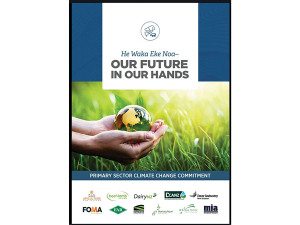OPINION: As the round of He Waka Eke Noa (HWEN) farmer 'consultation' meetings continue around the country, cracks seem to be appearing in the voices tasked with promoting its options of tackling farm emissions.
HWEN was established - including its politically-correct, fatuous name - by the industry in an effort to placate the Government that was hell-bent on forcing farming into the Emission Trading Scheme. Late last year, HWEN produced three options, which it is now consulting on: on-farm pricing, a hybrid processor model, and the third, or backstop, option - putting agricultural greenhouse gas emissions into the ETS.
However, like all forced partnerships, and good ideas in theory, HWEN's unity appears to be cracking. It is becoming increasingly clear that both Beef+Lamb NZ and DairyNZ are banging the jungle drums for an interim processor levy and then transitioning to an on-farm levy.
Both organisations have strenuously argued that the primary sector being included in the ETS is the 'worst' option.
Meanwhile, Federated Farmers - always a less enthusiastic member of the HWEN partnership - is at a crossroads and could pull out from the partnership, with reports of a special meeting this week to consider exactly this.
Feds president Andrew Hoggard recently wrote "before decisions are made around price settings and price-mechanism design, farmers and industry groups truly must understand the impacts of such decisions."
In other words, will the options proposed actually see overall reductions in world emissions?
Many farmers - and others - argue that the Paris Agreement made multiple mentions on needing to make emissions reductions but not at the cost of food production. But HWEN proponents are now claiming this only referred to third world countries and not developed economies like NZ.
However, the Paris Agreement is clear on this point, with a priority of "safeguarding food security and ending hunger..." and an article committing signatories to climare adaptation and emissions mitigation "... in a manner that does not threaten food production".
NZ agriculture has world-leading greenhouse gas footprints. If we reduce our production to meet emissions targets, it will only encourage other countries with higher emissions to fill the gap. The result: world emissions will go up, not down.
It is time the HWEN proponents finally got honest and admitted it is being forced to placate current government political demands. Nothing more, nothing less.



















